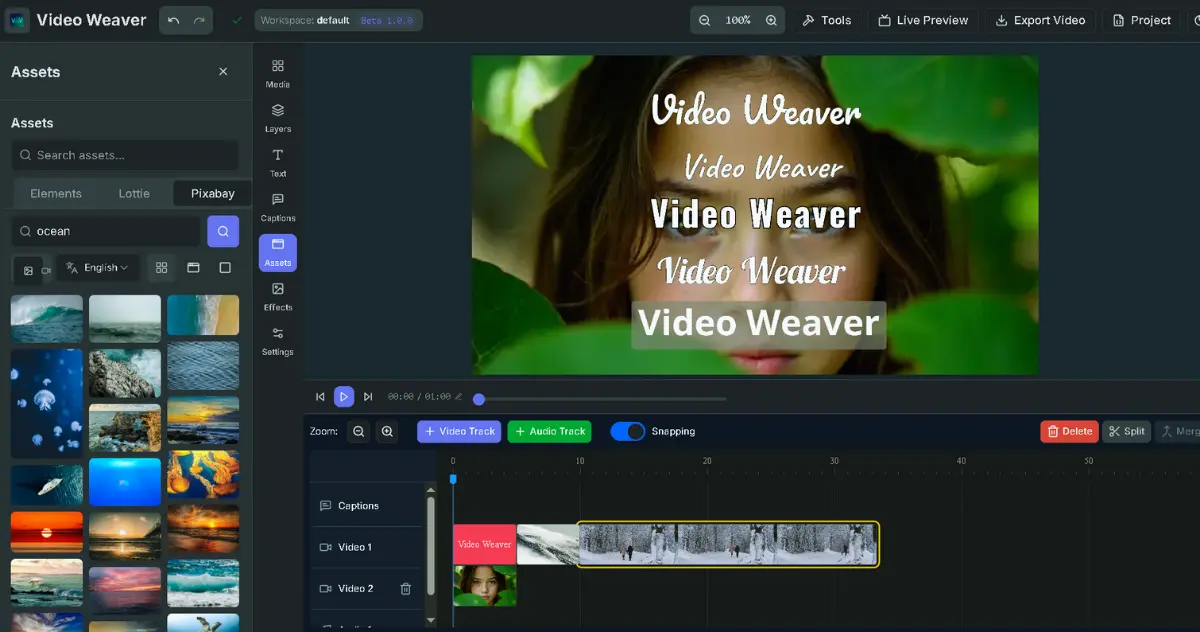AI Bombshell: Anthropic's $1.5 Billion Settlement Sets New Benchmark in AI Copyright Wars
AI company Anthropic has agreed to pay a record $1.5 billion to settle a class-action lawsuit brought by authors and publishers. The suit alleged Anthropic used pirated books from internet ‘shadow libraries’ to train its AI models, a settlement that could completely change the rules of the game for the AI industry.
In the era of rapid AI development, a legal battle over copyright and innovation seems to have reached a historic turning point. AI startup Anthropic recently agreed to a staggering $1.5 billion settlement to resolve a class-action lawsuit alleging massive copyright infringement.
The core of this case strikes at the gray area of how many current AI models are trained. A group of authors and publishers accused Anthropic of illegally downloading hundreds of thousands of copyrighted books from “shadow libraries” like Library Genesis (LibGen) and Pirate Library Mirror (PiLiMi) to train its well-known Claude large language model.
This settlement is not just monetarily astounding; it could be a bombshell for the entire AI industry, forcing all tech companies to re-examine the legality of their data sources. So, what really happened behind the scenes of this lawsuit? And what does this sky-high settlement signify?
What’s in the Settlement?
The terms of this settlement agreement are more than just monetary compensation. They secure a substantial victory for rights holders and draw several clear red lines.
The Largest Copyright Compensation Fund in History
First and foremost is the at least $1.5 billion non-reversionary settlement fund. This means the entire amount will be used to compensate affected copyright owners. According to court documents, the number of works involved is approximately 500,000, which translates to an average compensation of about $3,000 per work.
More importantly, the agreement stipulates that if the final number of eligible works exceeds 500,000, Anthropic must pay an additional $3,000 for each new work. This ensures fairness in compensation and demonstrates the plaintiffs’ strong position in the negotiations.
Destroying Data to Cut Off Infringement at the Source
Beyond money, the plaintiffs secured a crucial future safeguard: Anthropic must destroy the dataset of pirated books obtained from LibGen and PiLiMi.
This is a critical point. Destroying the data is not only a punishment for past infringement but also prevents the illegally obtained material from being used to train or develop new AI models in the future. It’s like requiring a thief not only to return the stolen goods but also to destroy all their burglary tools, addressing the problem at its root.
Addressing the Past, Not Forgiving the Future
Many might ask if this means Anthropic is off the hook for the future. The answer is no.
The scope of this settlement is strictly limited to “past” infringements up to August 25, 2025. This means:
- Future infringements are not exempt: If Anthropic continues to use infringing content after this date, rights holders can still file new lawsuits.
- The issue of AI-generated infringing content remains unresolved: The agreement explicitly states that it does not cover any claims arising from infringing content “output” by Anthropic’s AI models. This is a very clever arrangement, as whether AI-generated content constitutes infringement is one of the most fiercely debated topics in the legal world today. The plaintiffs have reserved the right to sue on this issue in the future.
How Was This Tough Battle Won?
Reaching this point was no accident. The plaintiffs’ legal team forced Anthropic to the negotiating table through a series of brilliant legal maneuvers.
Initially, Anthropic’s main defense was “Fair Use,” a common shield for tech giants in similar copyright disputes. They attempted to argue that using the books for AI training was a transformative use, intended to create new technology rather than replace the books themselves, similar to the argument in the landmark case Authors Guild, Inc. v. Google, Inc.
However, the plaintiffs seized on a fatal flaw: the illegality of the data source. The court, during the proceedings, partially adopted the plaintiffs’ view, ruling that Anthropic’s use of pirated materials was “inherently and irredeemably infringing.” This ruling significantly weakened Anthropic’s “Fair Use” claim and paved the way for the final settlement.
The entire litigation process involved arduous evidence gathering, including reviewing millions of pages of documents, over 20 depositions, and examining terabytes of training data. It was this relentless effort that revealed the scale of Anthropic’s use of pirated resources, ultimately leading to this historic settlement.
Why This Case is a Game-Changer for the AI Industry
The impact of this case extends far beyond Anthropic.
The CEO of the Authors Guild called the settlement “a strong message to the AI industry” that misappropriating authors’ works to train AI has serious consequences. The Association of American Publishers also stated that the settlement has “immense value in conveying the message that AI companies cannot illegally acquire content as the foundation of their business.”
In the past, many AI companies, driven by a “more data is better” mentality, turned a blind eye to the sources of their training data. They may have believed that as long as the final AI model did not directly copy the original text, the legal risks were manageable. But the Anthropic case sounds a clear alarm: the “original sin” of data cannot be easily washed away.
This will force all AI developers, from tech giants to small startups, to establish stricter data source review mechanisms and instead seek to cooperate with content creators and publishers to obtain training data through legal means such as licensing.
What Happens Next?
Currently, the settlement agreement still requires preliminary approval from the court. Once approved, the next step will be to notify all eligible class members (i.e., copyright owners whose works are included in the “Works List”) and hold a final fairness hearing.
This process will be very complex, especially in accurately identifying all the affected works and fairly distributing the $1.5 billion settlement fund to thousands of authors and publishers.
Regardless, Anthropic’s massive settlement has already written an important chapter in the history of artificial intelligence. It not only secures due respect and compensation for content creators but also draws a clear legal and ethical bottom line for the wildly developing field of AI. Technological innovation should not be built on the trampling of others’ labor, and that is perhaps the most profound lesson from this case.
Source
https://storage.courtlistener.com/recap/gov.uscourts.cand.434709/gov.uscourts.cand.434709.363.0.pdf




